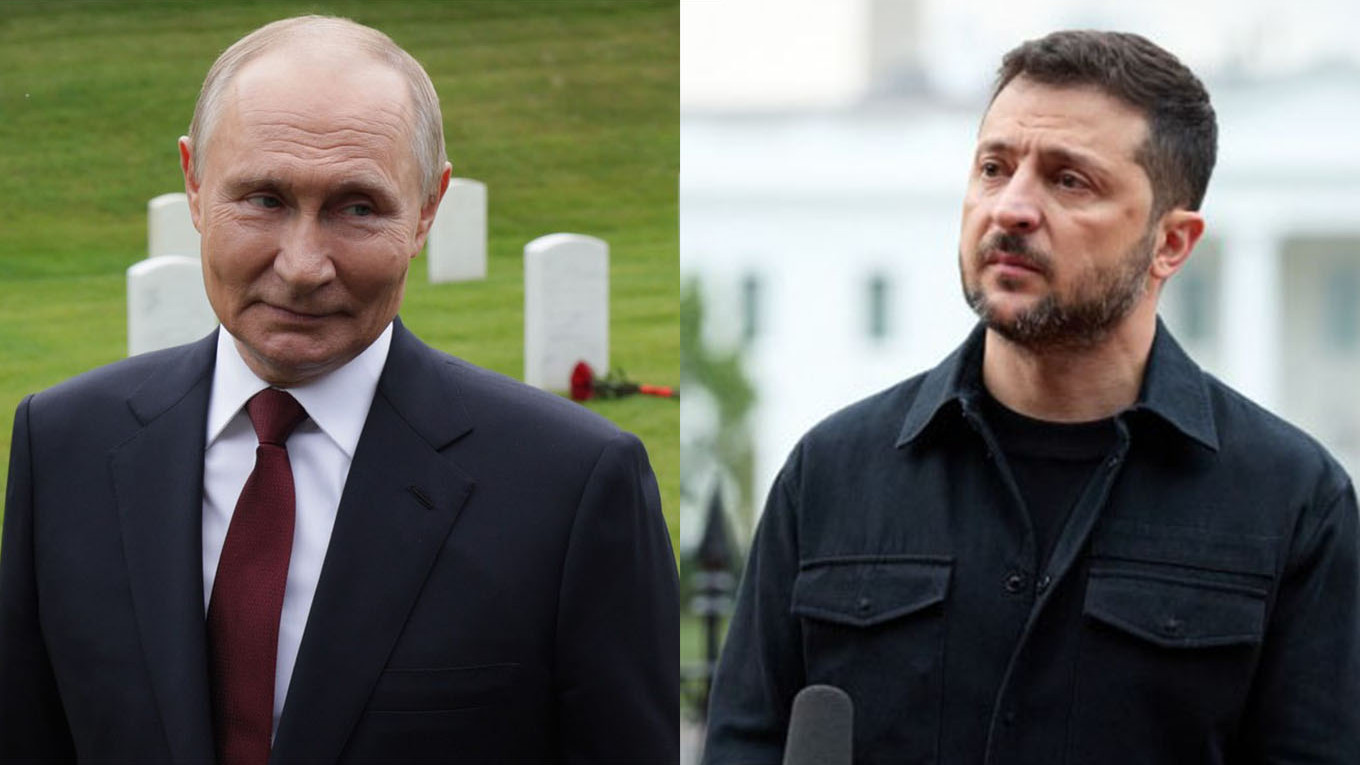The prospect of a direct meeting between Russian President Vladimir Putin and Ukrainian President Volodymyr Zelensky is currently making waves in the media.
U.S. President Donald Trump is advocating for a face-to-face encounter between the two leaders following his recent summit with Putin in Alaska and subsequent discussions with Zelensky and European officials at the White House on Monday.
Previous peace negotiations between Moscow and Kyiv fell apart in 2022, and renewed discussions over the summer also failed to yield significant progress.
Now, nearly three and a half years after Russia’s invasion of Ukraine devastated the nation and caused significant loss of life, are the leaders of the two conflicting nations ready to engage in talks?
The Moscow Times highlights several challenges that may hinder such a meeting:
Zelensky and Putin have met in person only once, during Normandy Format discussions aimed at resolving the conflict in eastern Ukraine, alongside the leaders of Germany and France in Paris in December 2019.
Since Russia began its full-scale invasion in 2022, there has been no direct communication between the two leaders.
After a phone call with Putin on Monday, Trump stated that he “began the arrangements for a meeting, at a location to be determined,” between the Russian and Ukrainian leaders. The White House also confirmed on Tuesday that planning is underway for a bilateral summit, with “many options” being explored.
Zelensky expressed his willingness to meet Putin after their talks in Washington; however, he clarified on Thursday that he would require security guarantees for Ukraine from its allies to prevent future Russian aggression before any meeting could take place.
Conversely, Moscow’s stance remains ambiguous.
The Kremlin has not confirmed whether it is preparing for a meeting or if Putin would even consider meeting Zelensky, stating only on Tuesday that it is “considering the possibility of elevating the level” of direct talks without offering specifics.
On Wednesday, Russian Foreign Minister Sergei Lavrov confirmed that Putin is open to “considering the elevation” of discussions regarding Ukraine following a call with Trump.
Lavrov emphasized that any potential meeting “must be thoroughly prepared” to prevent any deterioration, while also noting that Moscow is “ready to engage in any format.”
Ivan Stupak, an advisor to Ukraine’s parliamentary committee on national security, remarked that although “there is a consensus in Ukraine on the need to stop the war,” he doubts that Russia is inclined to hold “a meeting for the sake of a meeting” and will likely prolong the issue, avoiding a direct encounter with Zelensky.
“First, extensive preparatory work must be carried out, and there should be at least a preliminary consensus on what will be agreed upon… Only then can planning for a future meeting between the two presidents take place,” Stupak, a former officer of the Ukrainian security services, told The Moscow Times.
Currently, there is no confirmed date for a possible meeting. German Chancellor Friedrich Merz stated on Tuesday that discussions could occur within the next two weeks.
The location also remains uncertain, particularly due to Putin being sought by the International Criminal Court.
Switzerland’s foreign minister indicated that his nation would grant Putin immunity from arrest if he traveled there for peace discussions. Hungary has also offered to host the meeting.
Reports suggest that during his Monday conversation with Trump, Putin proposed holding the discussions in Moscow, to which Zelensky responded with a firm “No.”
Zelensky insists that any talks should occur in a neutral European location, with Switzerland, Austria, or Turkey viewed as viable options by Kyiv.
Despite having signed a decree effectively banning negotiations with Putin in 2022, Zelensky had previously invited the Russian leader to talks in Istanbul in May.
Ukraine’s peace framework, which Kyiv’s delegation presented during talks in Turkey in June, also called for a summit of leaders to address key components of a peace agreement.
The Kremlin, which has long sought to change Ukraine’s leadership, has repeatedly labeled Zelensky as an illegitimate president, referencing the fact that his term ends in 2024. Ukraine has postponed its presidential elections under martial law enacted post-invasion.
“It doesn’t matter who conducts the talks, even if it’s the current leader of the [Kyiv] regime. I am even ready to meet, but only if it is for a conclusive stage — not to endlessly debate our differences, but to finalize things,” Putin remarked in June.
“However, that conclusion, that signature, must come from legitimate authorities. Otherwise, another leader could come along and disregard everything, which is unacceptable — we are dealing with serious matters. That is why I am not refusing, but much groundwork must be completed first,” he added.
A significant point of disagreement between Russia and Ukraine is the status of territories seized by Moscow in any potential peace agreement.
At present, Russia occupies about one-fifth of Ukraine, encompassing most of the eastern Luhansk and Donetsk regions, parts of the southern Zaporizhzhia and Kherson regions, as well as the annexed Crimean peninsula since 2014.
Kyiv has consistently asserted that it will never recognize Russia’s occupation of its territories.
These regions are enshrined in the constitutions of both nations, complicating the possibilities for compromise.
On Monday, Trump suggested that Ukraine may need to relinquish control of Crimea, indicating that any agreement might involve “some land swaps or changes” between the two nations.
Zelensky stated that the issue of occupied territories would be specifically addressed during direct discussions with Putin.
The potential for a summit between Putin and Zelensky has surfaced as Russia escalates its military offensive along the front lines.
Although Russia’s progress has been slow and arduous, with little change to the overall front line over the course of the three and a half years of conflict, “from a military standpoint, Russia has more prospects,” remarked Stupak.
The U.S.-based Institute for the Study of War recently indicated that Russian forces have made advances in the Donetsk region while continuing offensives in Sumy and Kharkiv, alongside limited assaults in Kherson.
Just before the Trump-Zelensky discussions in Washington on Monday, Russian strikes resulted in 14 casualties across Ukraine, including in a residential building in Kharkiv.
On Thursday, Russia also launched a significant attack involving hundreds of drones and missiles against Ukraine, which Kyiv described as the largest assault since mid-July.
Maria Snegovaya, a senior fellow on Russia and Eurasia at the Center for Strategic and International Studies, argued that the Kremlin’s ambiguous statement regarding the “elevation of talks” in response to specific proposals for a Putin-Zelensky meeting illustrates Moscow’s true intentions.
“The Kremlin is once again stalling to prolong its offensive,” Snegovaya commented.

